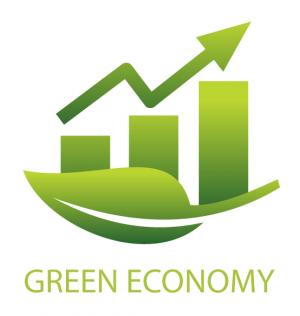Management of Aquatic Ecosystems through Community Husbandry Program
Description
Source: World Resources Institute (2011) A Compilation of Green Economy Policies, Programs, and Initiatives from Around the World. The Green Economy in Practice: Interactive Workshop 1, February 11th, 2011
The Management of Aquatic Ecosystems through Community Husbandry (MACH) program was initiated in 1998 to reverse the trends of wetlands degradation and a concentration of income among a handful of leaseholders in Bangladesh. MACH advocates a multi-disciplinary, multi-sector and participatory process of planning, implementation and monitoring for sustainable wetland resource management. One of the key building blocks to the MACH approach for sustainable wetland management was establishing Resource Management Organizations (RMOs), each of which represents all the stakeholder groups for a particular part of the wetland system.
The RMOs have worked to protect water bodies, to address problems identified by the communities in these areas, which have involved setting rules and limits on use, and restoring wetland habitat including tree planting. To offset the hardships caused by fishing restrictions, poor households also receive skills training and micro-loans to start new enterprises. The MACH program's success is rooted in community self-interest and ownership. MACH programs are being implemented by four non-government organizations including Winrock International, the Bangladesh Centre for Advanced Studies, the Center for Natural Resources Studies and CARITAS- Bangladesh.
The benefits of the program are as follows:
- Average daily household incomes increased by 33 percent between 1999 and 2006;
- Sixty-three sanctuaries established, covering 178 hectares, 57 ha of beel wetland and 31 km of water channels excavated;
- Over 2 million days of local employment created;
- Average daily household incomes rose by a third to US$1.31 between 1999 and 2006;
- Wetlands were restocked with 1.2 million fish from 15 native species, including 8 threatened fish species and two locally extinct species;
- Members of 5,202 wetland-dependent households received training and credit to start new livelihoods;
- Between 1999 and 2006, fish catches in project villages rose by 140% and fish consumption rose by 52%;
- Improved participation of women in workforce and local decision-making processes.
SDGS & Targets
Goal 8
Promote sustained, inclusive and sustainable economic growth, full and productive employment and decent work for all
8.1
8.1.1
Annual growth rate of real GDP per capita
8.2
Achieve higher levels of economic productivity through diversification, technological upgrading and innovation, including through a focus on high-value added and labour-intensive sectors
8.2.1
Annual growth rate of real GDP per employed person
8.3
Promote development-oriented policies that support productive activities, decent job creation, entrepreneurship, creativity and innovation, and encourage the formalization and growth of micro-, small- and medium-sized enterprises, including through access to financial services
8.3.1
Proportion of informal employment in total employment, by sector and sex
8.4
Improve progressively, through 2030, global resource efficiency in consumption and production and endeavour to decouple economic growth from environmental degradation, in accordance with the 10-Year Framework of Programmes on Sustainable Consumption and Production, with developed countries taking the lead
8.4.1
Material footprint, material footprint per capita, and material footprint per GDP
8.4.2
Domestic material consumption, domestic material consumption per capita, and domestic material consumption per GDP
8.5
8.5.1
Average hourly earnings of female and male employees, by occupation, age and persons with disabilities
8.5.2
Unemployment rate, by sex, age and persons with disabilities
8.6
8.6.1
Proportion of youth (aged 15-24 years) not in education, employment or training
8.7
Take immediate and effective measures to eradicate forced labour, end modern slavery and human trafficking and secure the prohibition and elimination of the worst forms of child labour, including recruitment and use of child soldiers, and by 2025 end child labour in all its forms
8.7.1
Proportion and number of children aged 5‑17 years engaged in child labour, by sex and age
8.8
Protect labour rights and promote safe and secure working environments for all workers, including migrant workers, in particular women migrants, and those in precarious employment
8.8.1
Fatal and non-fatal occupational injuries per 100,000 workers, by sex and migrant status
8.8.2
Level of national compliance with labour rights (freedom of association and collective bargaining) based on International Labour Organization (ILO) textual sources and national legislation, by sex and migrant status
8.9
By 2030, devise and implement policies to promote sustainable tourism that creates jobs and promotes local culture and products
8.9.1
Tourism direct GDP as a proportion of total GDP and in growth rate
8.10
Strengthen the capacity of domestic financial institutions to encourage and expand access to banking, insurance and financial services for all
8.10.1
(a) Number of commercial bank branches per 100,000 adults and (b) number of automated teller machines (ATMs) per 100,000 adults
8.10.2
Proportion of adults (15 years and older) with an account at a bank or other financial institution or with a mobile-money-service provider
8.a
8.a.1
Aid for Trade commitments and disbursements
8.b
By 2020, develop and operationalize a global strategy for youth employment and implement the Global Jobs Pact of the International Labour Organization
8.b.1
Existence of a developed and operationalized national strategy for youth employment, as a distinct strategy or as part of a national employment strategy
SDG 14 targets covered
Deliverables & Timeline
Resources mobilized
Partnership Progress
Feedback
Action Network


